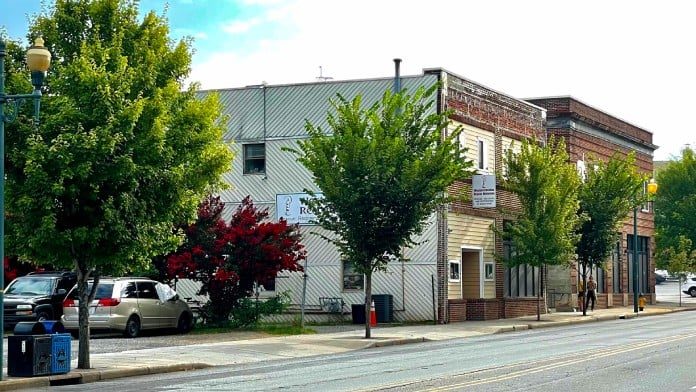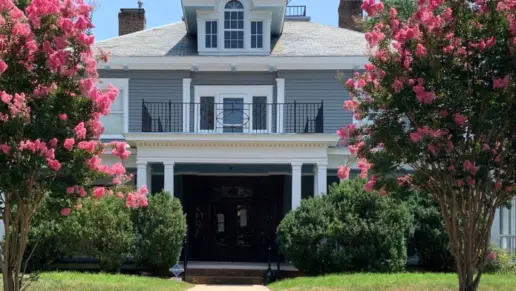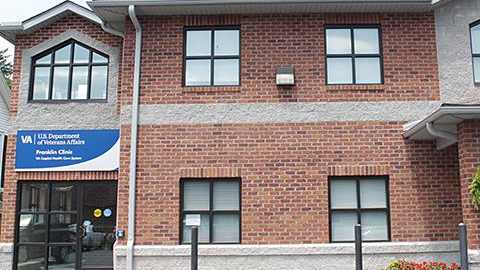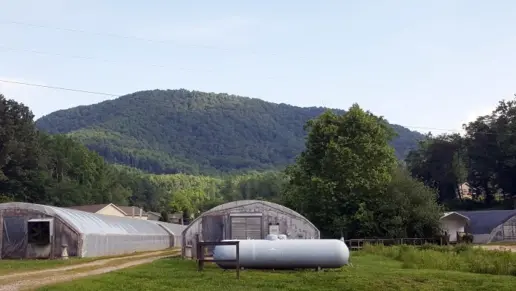About Western Carolina Rescue Ministries
In Asheville, North Carolina, Western Carolina Rescue Ministries provides assistance to those battling homelessness, addiction, and poverty. Their top priorities include providing essential services, assisting those in need, and opening doors for a better future.
This nondenominational ministry is based on the teachings of Jesus Christ. They offer a warm environment to individuals of all faiths. Food boxes, dinners, clothes, showers, and overnight lodging are just a few of the many services they provide. Apart from providing prompt assistance they provide men and women with life coaching, job training, and transitional support as part of their restoration programs which aim to help them reconstruct their lives.
Mothers who’re battling addiction are the focus of one of their offered programs. There is an optional six month transitional stay during this all inclusive free program. Addicts receive the loving care they need to recover along with the support of their babies. The program’s 14 welcoming Mommy and Baby rooms are made to cater to each participant’s unique needs and guide them toward a drug free lifestyle.
Mothers receive love and hope along the way, bolstered by a structured living environment that promotes personal development. They possess essential life skills such as knowledge about nutrition, cooking, housekeeping, and parenting. In order to provide women with the skills they need to succeed on their own the program also places a strong emphasis on job and educational opportunities, financial planning, and budgeting.
An intense life training course is offered by a residential drug and alcohol program for men who are seeking recovery. This program lasts nine months and offers tools and support for a healthier, drug free life in an effort to assist participants in escaping the grip of addiction.
They’re dedicated to changing lives in all facets of their work. Through the provision of both short-term assistance and long-term rehabilitation the ministry enables people to move forward from their past and into a future full of promise and hope.
Rehab Score
Gallery

Location
Other Forms of Payment
Addiction Treatments
Levels of Care
Treatments
The goal of treatment for alcoholism is abstinence. Those with poor social support, poor motivation, or psychiatric disorders tend to relapse within a few years of treatment. For these people, success is measured by longer periods of abstinence, reduced use of alcohol, better health, and improved social functioning. Recovery and Maintenance are usually based on 12 step programs and AA meetings.
There are many types of drug rehab in North Carolina. To receive treatment for addiction, you can choose from many inpatient and outpatient programs. Often, participants start with detox and work through a full continuum of care that continues with ongoing support for long-term recovery.
Many of those suffering from addiction also suffer from mental or emotional illnesses like schizophrenia, bipolar disorder, depression, or anxiety disorders. Rehab and other substance abuse facilities treating those with a dual diagnosis or co-occurring disorder administer psychiatric treatment to address the person's mental health issue in addition to drug and alcohol rehabilitation.
Opioid rehabs specialize in supporting those recovering from opioid addiction. They treat those suffering from addiction to illegal opioids like heroin, as well as prescription drugs like oxycodone. These centers typically combine both physical as well as mental and emotional support to help stop addiction. Physical support often includes medical detox and subsequent medical support (including medication), and mental support includes in-depth therapy to address the underlying causes of addiction.
Substance rehabs focus on helping individuals recover from substance abuse, including alcohol and drug addiction (both illegal and prescription drugs). They often include the opportunity to engage in both individual as well as group therapy.
Programs


Clinical Services
Group therapy is any therapeutic work that happens in a group (not one-on-one). There are a number of different group therapy modalities, including support groups, experiential therapy, psycho-education, and more. Group therapy involves treatment as well as processing interaction between group members.
In individual therapy, a patient meets one-on-one with a trained psychologist or counselor. Therapy is a pivotal part of effective substance abuse treatment, as it often covers root causes of addiction, including challenges faced by the patient in their social, family, and work/school life.
Life skills trainings involve all the skills a person must have in order to function successfully in the world. They provide life counseling, job training and assistance with transitional services so that people have the opportunity to change their situations and build a better future. These services are designed to equip long-term homeless clients, Recovery Program participants and the working poor from the community with the tools necessary to overcome the internal and external problems that have plagued their past, corrupted their present, and are jeopardizing their future.
Trauma therapy addresses traumatic incidents from a client's past that are likely affecting their present-day experience. Trauma is often one of the primary triggers and potential causes of addiction, and can stem from child sexual abuse, domestic violence, having a parent with a mental illness, losing one or both parents at a young age, teenage or adult sexual assault, or any number of other factors. The purpose of trauma therapy is to allow a patient to process trauma and move through and past it, with the help of trained and compassionate mental health professionals.
Amenities
-
Residential Setting
-
Private Setting
Contact Information
225 Patton Avenue
Asheville, NC 28802


